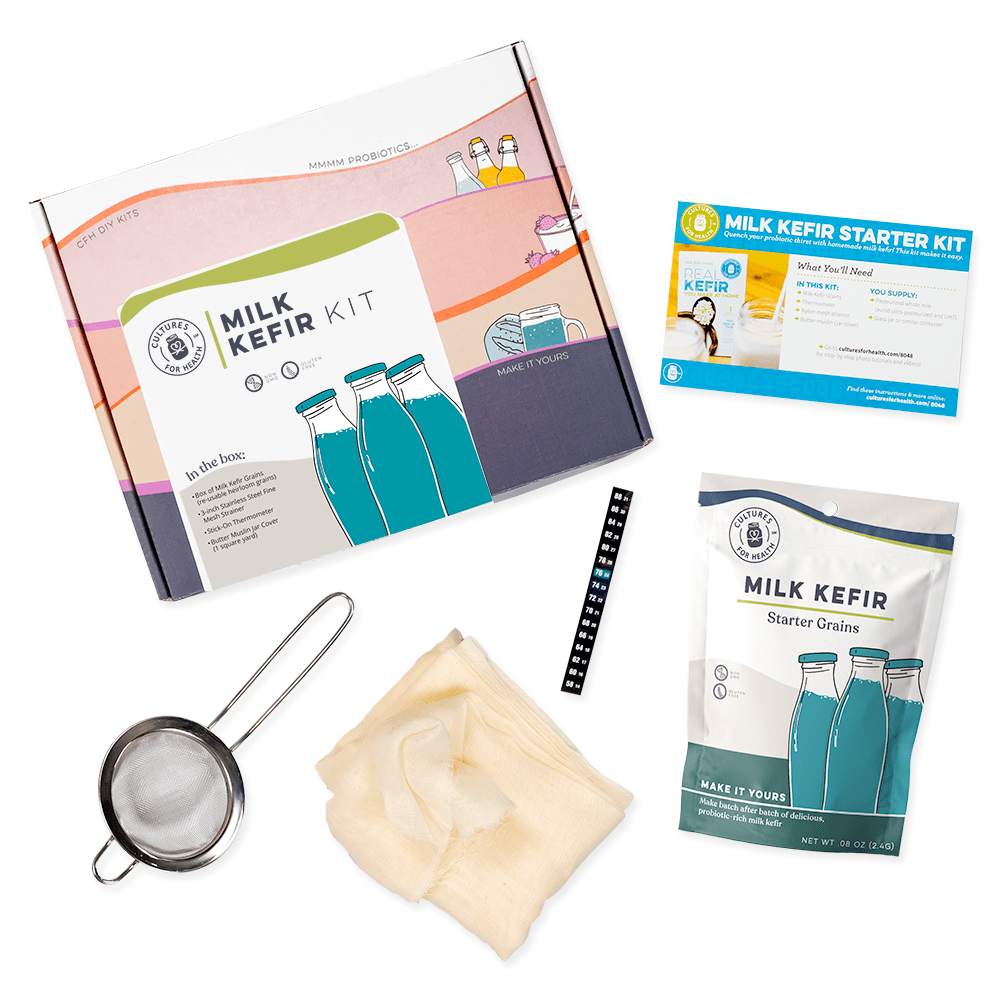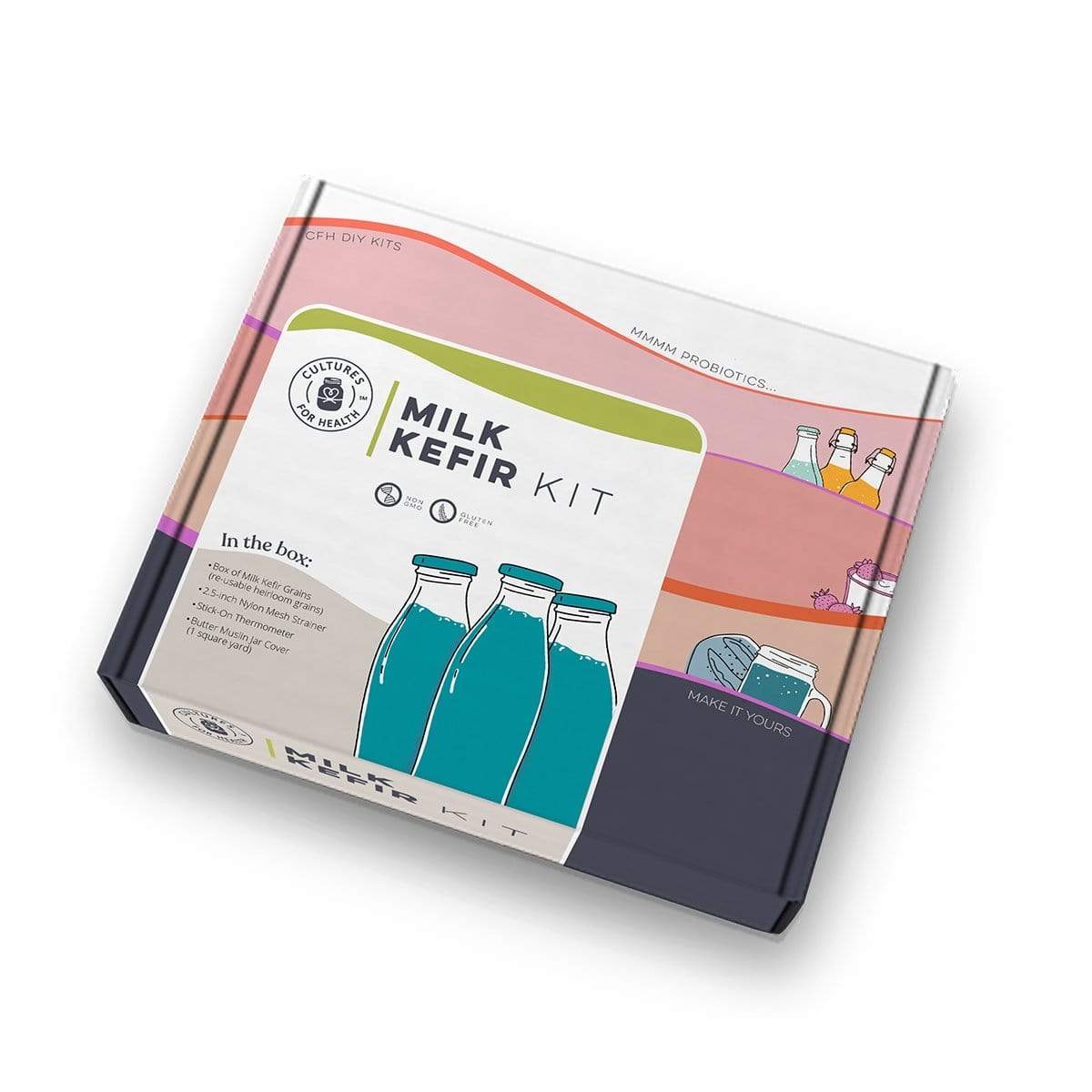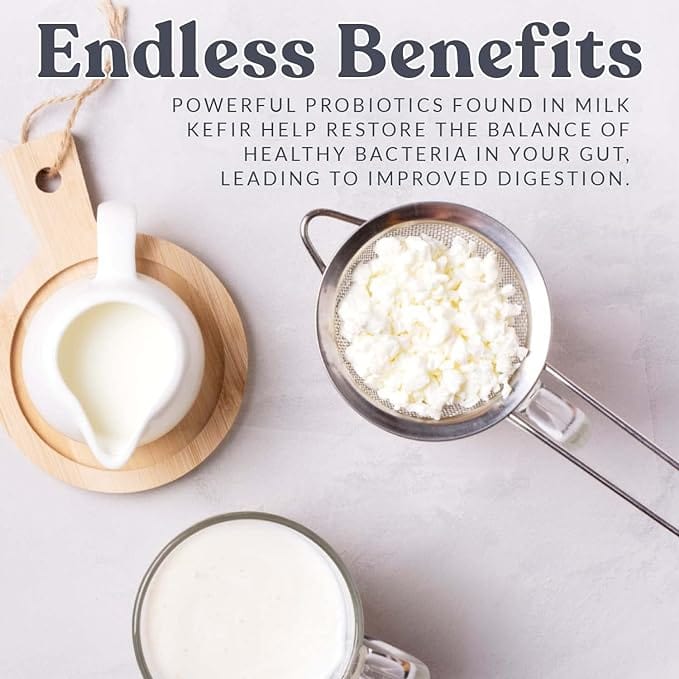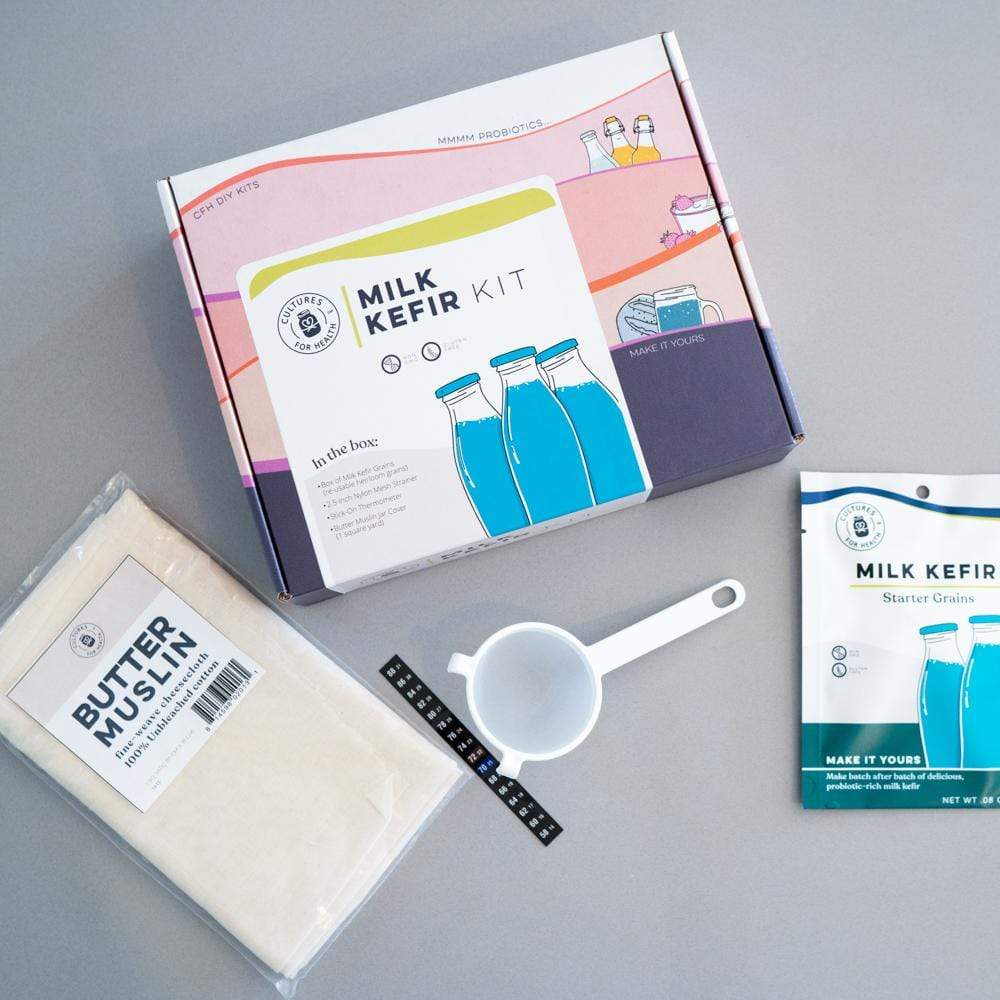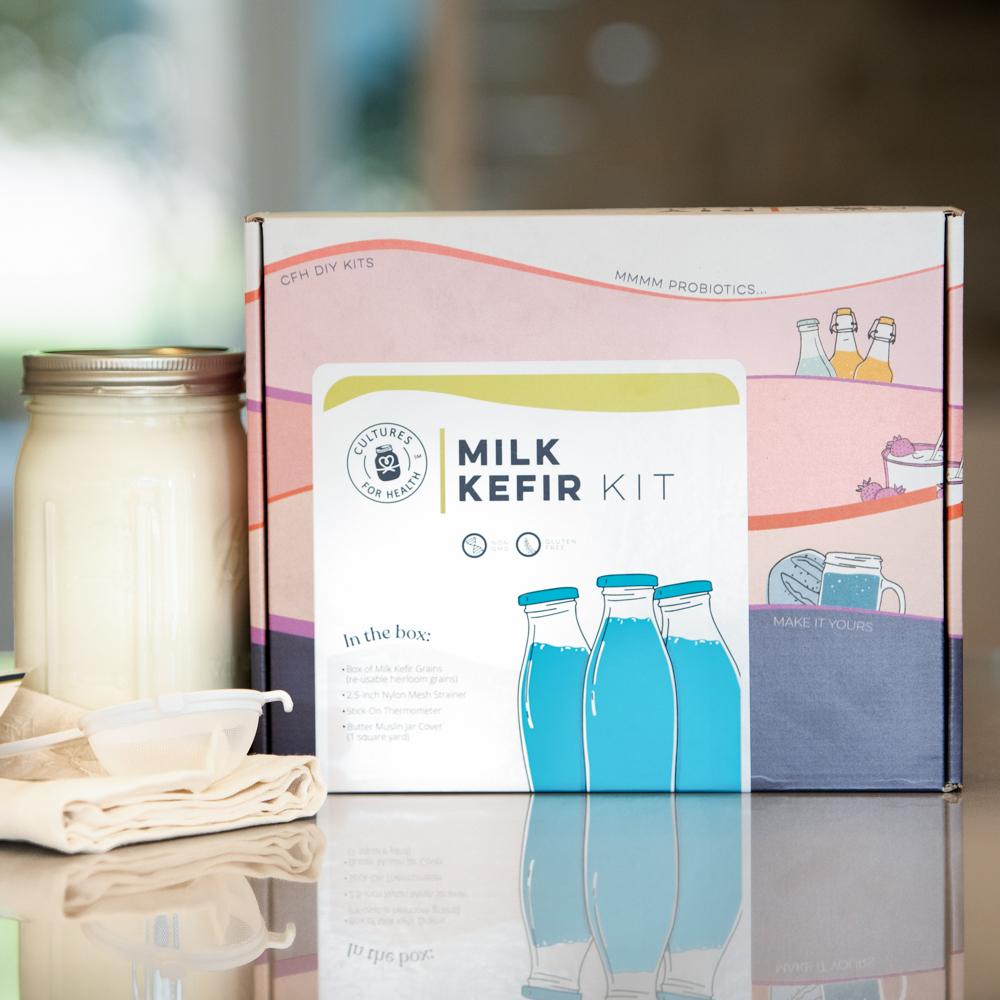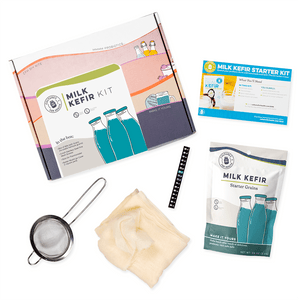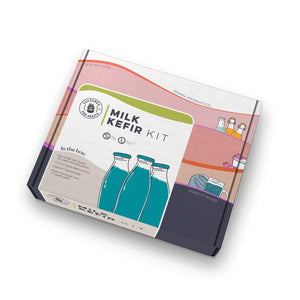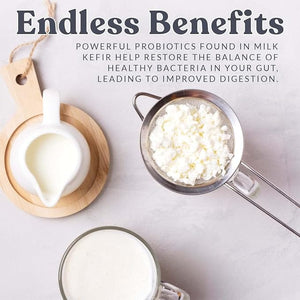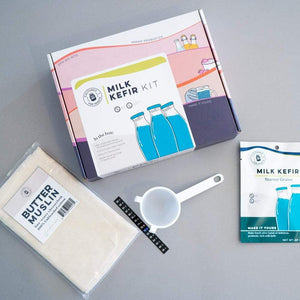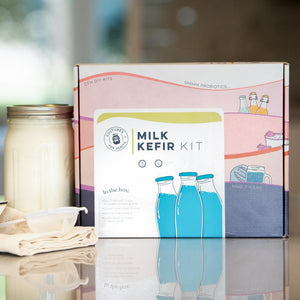
Kefir is a fermented beverage that’s made by adding a kefir culture to milk or water. It has been enjoyed in Eastern Europe and Russia for centuries, but it was not until the 20th century that it became popular in the USA.
Kefir is considered one of the healthiest fermented beverages out there. But is kefir good for you? In this article, we will explore the kefir benefits, its nutrition information, and ways to incorporate it into your diet.
What Is Kefir and Why Is It Good for You?

Kefir is a tangy, slightly effervescent fermented beverage that has its roots in the Caucasus Mountains of Russia. It’s made by adding kefir grains to sugar water or milk.
Kefir grains are a combination of bacteria and yeast that ferment the lactose in the milk. The mixture is left to ferment for 12-24 hours, after which the kefir grains are strained out, and the resulting kefir is ready to be consumed.
Varieties of Kefir
Kefir comes in different varieties, depending on the type of milk used and the fermentation process. Milk kefir is the most popular variety of kefir, while other types include water kefir and coconut milk kefir.
Water kefir is made by fermenting sugar water or fruit juice with water kefir grains, while coconut milk kefir is made by fermenting coconut milk with milk kefir grains.
If you want to know more about the different types of kefir grains, consider reading our article, Milk Kefir Vs. Water Kefir. This article explains everything you need to know about kefir grains, how it’s made, the taste of kefir, and different ways to use kefir.
Although the nutritional content may vary slightly depending on the type of kefir you're drinking, all offer similar health benefits.
Note: If you're interested in making your own kefir at home, we have some great kefir recipes for you. Most of these recipes are easy to use and offer great taste and tons of health benefits. So there's no reason not to give them a try. Here are a few to get you started:
Milk Kefir Starter Kit
The Nutritional Facts of Kefir
Kefir is a nutrient-dense beverage that provides a range of vitamins, minerals, and beneficial bacteria. The exact nutritional content of kefir can vary depending on the type of milk and the fermentation process, but here are some main nutritional facts:
-
Kefir is a good source of protein, providing approximately 7-8 grams of protein per cup.
-
Kefir is a good source of calcium, which is essential for bone health. One cup of milk kefir can provide up to 29% of the daily recommended intake of calcium.
-
Kefir is rich in vitamin B12, which is essential for maintaining healthy nerves and red blood cells. One cup of kefir can provide up to 16% of the daily recommended intake of vitamin B12.
-
Kefir also contains vitamin K2, which is important for bone and heart health. 100g of fermented milk kefir can provide up to 13μg of vitamin K2.
-
Kefir is rich in probiotics. It also contains a range of different probiotic strains—for instance, Lactobacillus acidophilus, Lactobacillus kefiranofaciens, and Bifidobacterium bifidum.
Benefits of Kefir
As we said earlier, kefir has been consumed in parts of Eastern Europe and Asia for centuries, but has gained popularity in recent years in the USA due to the potential health benefits of kefir. Here are some of the top kefir benefits:

Improve Gut Health and Digestion
Kefir is an excellent source of probiotics, which are beneficial bacteria that live in your gut and help maintain a healthy digestive system. When consumed regularly, kefir can help to improve digestion by breaking down food more efficiently.
Kefir also reduces the risk of digestive issues such as bloating, gas, and constipation. This is because the healthy bacteria in kefir help to increase the population of beneficial bacteria in the gut. This increase, in turn, can improve the overall health of the digestive system.
Studies have shown that consuming probiotics can help alleviate symptoms of gastrointestinal disorders like irritable bowel syndrome (IBS) and inflammatory bowel disease (IBD).
What’s more, kefir can also help to strengthen the intestinal lining, which can reduce the risk of leaky gut syndrome. This is a condition in which the intestinal lining becomes damaged, allowing harmful bacteria and toxins to leak into the bloodstream.
Boost Immune System
Kefir contains several immune-boosting compounds, including vitamin B12, calcium, and magnesium. It also contains lactoferrin, a protein that has been shown to have antiviral and antibacterial properties.
In 2005, a team of researchers conducted a study on rats to explore the wound-healing properties of kefir. They used a kefir formulation made from dried grains and compared it to traditional treatment.
The researchers found that the kefir formulation helped speed up healing by reducing inflammation and promoting new tissue growth. Plus, it supported the immune system, which helped to reduce the risk of infection.
Lower Risk of Certain Diseases
Research has suggested that consuming kefir may help lower the risk of certain diseases, including type 2 diabetes and heart disease. Several studies have found that consuming kefir helps reduce blood sugar levels in people with type 2 diabetes.
Furthermore, a handful of studies found that consuming kefir helps lower levels of LDL (bad) cholesterol in people with high cholesterol.

Weight Management
Some studies have suggested that consuming kefir may help with weight management or even weight loss. One study found that consuming kefir for 8 weeks helped reduce body weight and waist circumference in obese individuals.
The protein and probiotics in kefir may help to increase feelings of fullness, reduce appetite, and improve metabolism. All these factors could contribute to weight loss over time. However, more research is needed to fully understand the link between kefir and weight management.
Skin Benefits
Kefir contains several compounds that may be beneficial for skin health, including lactic acid and probiotics. Lactic acid is known for its exfoliating properties and for removing dead skin cells.
A recent study explored the effects of homemade kefir consumption on skin conditions in healthy and atopic volunteers. The study found that consuming homemade kefir led to significant improvements in skin hydration, transepidermal water loss, and skin surface pH—all of which are important in maintaining healthy skin. Thus, homemade kefir could be a simple and cost-effective way to improve skin health.
See Related: Milk Kefir Recipes
Furthermore, studies have found that applying probiotics topically helps improve skin hydration and reduce the appearance of fine lines and wrinkles.
Reduce Inflammation
Kefir has been shown to have anti-inflammatory properties, which may help to reduce inflammation in the body and prevent chronic diseases.
Improve Bone Health
Kefir is a good source of calcium and vitamin K2, both of which are important for maintaining strong and healthy bones.
A 2015 study examined the effects of milk kefir consumption on bone mineral density in osteoporotic patients. After six months of kefir intake, they found that kefir may be helpful in improving bone health in those with osteoporosis.
May Have Anti-Cancer Properties
Some research has suggested that kefir may have anti-cancer properties. According to a study published in Medical Oncology, the healthy bacteria in kefir, specifically lactic acid bacteria (LAB), are believed to stimulate the immune system and may positively affect cancer-related processes such as apoptosis, proliferation, and anti-oxidation.
Further research is needed to fully understand the link between kefir and cancer prevention or treatment.
How to Incorporate Kefir into Your Diet
Kefir is a versatile ingredient that can be enjoyed in a variety of ways. Some examples:
-
One of the simplest ways to enjoy kefir is to drink it straight from the bottle.
-
Kefir is also a great addition to smoothies. Combine it with your favorite fruits, vegetables, and other ingredients for a delicious and nutritious drink.
-
Kefir can be used as a base for salad dressings. Simply mix it with your favorite herbs and spices for a creamy, tangy dressing.
-
Kefir can be a great addition to your breakfast routine. You can pour it over cereal, granola, or oatmeal.
-
Kefir can be used in baking recipes as a substitute for buttermilk or yogurt. It can add a tangy flavor to baked goods such as muffins, pancakes, and bread.
-
Kefir can be used as a marinade for meats, poultry, and fish. The acid in kefir can help tenderize the meat while adding flavor and moisture.
-
Kefir can even be strained to make soft cheese.
Incorporating kefir into your diet is easy and can provide a wide range of health benefits. Be sure to experiment with different ways of consuming kefir to find the ones that you enjoy the most.
A Note on Kefir Consumption
While milk kefir is generally safe for most people, those who are lactose intolerant or have a milk allergy should avoid it. For such people, water kefir is the best option to enjoy the health benefits of kefir. Furthermore, those who are on antibiotics should wait until they’ve finished their course of medication before consuming kefir. This is because antibiotics can kill the beneficial bacteria in kefir.
The Bottom Line For Kefir Benefits
Overall, kefir is a nutritious and delicious addition to any diet. Research into kefir benefits is still ongoing, but there’s already a significant amount of evidence supporting its potential health benefits.
Whether you prefer milk kefir, water kefir, or coconut milk kefir, making kefir at home is super easy. You can incorporate kefir into your diet in various ways. Just be sure to consult with your healthcare provider first if you have any milk allergies or are consuming antibiotics.












